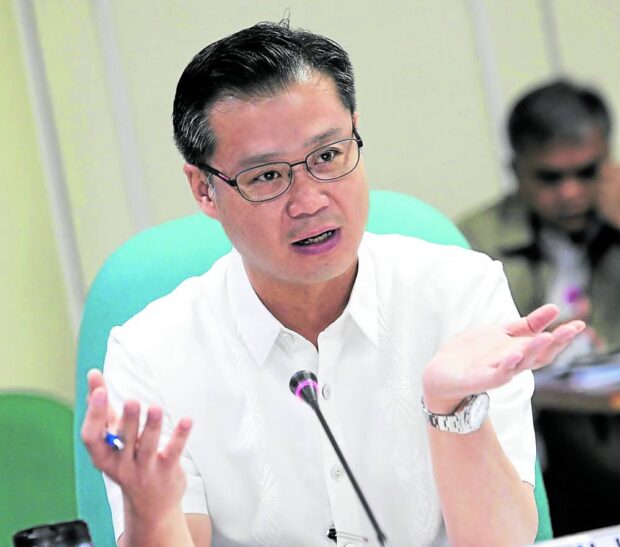Senator on ‘ghost students’: A deliberate effort to defraud gov’t?

Sen. Sherwin Gatchalian (Senate PRIB)
MANILA, Philippines — Senator Sherwin Gatchalian questioned on Wednesday the alleged existence of more than 19,000 “ghost students” in the country’s voucher program for senior high school students.
Speaking at a Senate hearing, Gatchalian branded this as another “leakage” plaguing the financial program aimed at granting subsidy to underprivileged senior high learners.
“Aside from the non-poor, aside from the non-decongestion, we’re now talking about another leakage — which is ghost students. Correct me if I’m wrong, if you add all of those it’s close to 19,000 undocumented students,” said Gatchalian, chairperson of the Senate panel on basic education.
“The undocumented can literally be no student. Can be. Possible. We don’t know,” he added.
READ: SHS VP must prioritize poor beneficiaries — Gatchalian
Article continues after this advertisementRefund millions
Citing Private Education Assistance Committee’s (PEAC) data, the senator bared that there are schools in the country that have to refund millions from the voucher program.
Article continues after this advertisementAmong the institutions that he mentioned include St. Joseph School of Candaba (P80 million), San Jose Academy of Bulacan (P68 million) and Electron College of Technical Education (P14 million).
“I also saw in a PEAC report that we’re still expecting P239 million to be refunded. My question is why do we have to refund P239 million from the voucher program? And how come one school can rack up up to P80 million in terms of refund? Was this an accumulation?” Gatchalian wondered.
While no categorical answer was made, PEAC’s Monitoring and Processing Officer Rodrick Edsel Malonzo mentioned that they have met with St. Joseph of Candaba’s officials.
No documentation
Malonzo said during the meeting, the school’s officials failed to present documents proving that their beneficiaries are legitimate. He, however, emphasized that these officials have signified their commitment to present the documents needed.
“In other words they are billing the government but they cannot present documents to prove the existence of these students?” Gatchalian asked, to which Malonzo said yes.
This then prompted Gatchalian to question whether he can call these learners as “ghost students,” but Malonzo maintained that for now they have settled with the term “undocumented voucher program beneficiaries.”
Defraud the government?
The alleged existence of these “ghost students” made Gatchalian wonder whether there is a “deliberate effort to defraud” the Philippine government.
At the other end of Gatchalian’s prodding was Commission on Audit (COA) Supervising Auditor Imelda Celso who maintained that the commission still needs to investigate the matter before announcing whether or not there are attempts to harm the government.
“I cannot speak for the findings of the previous audit team. But as I have said before, we are going to look into that or going to perform the same audit. We need to determine again through our audit and from there we can render an opinion on whether or not there is an intention to defraud the government,” she explained.
In school year 2016-2017, COA detected 115 senior high school voucher program beneficiaries who were considered as “ghost students,” Celso noted.